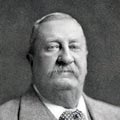Over the Quillapatuni Pass to Tipuani, Part 3
I had heard that an American, called Salter, had a rather exciting adventure at this pass, and when I mentioned it to Manuel he told me he himself had taken him from Tiquiripaga, with his llamas, and gave me an account of the whole thing. Apparently, they had just started to walk down the hill, when Salter got giddy and fell over. He rolled down about thirty yards, and fortunately fell up against a big tree-fern, which saved him. Manuel and his two men tied together a couple of strong llama ropes, and threw them down to Salter, who made one end fast round his body, and was hauled up. After this escape, he refused to go on any further, and returned at once. Salter told me the story himself some time later. He had been engaged by the Texas Gold Mining Company to go to the lower Tipuani and take charge of a gold washing concession for a salary of £1,000 a year, and all expenses. “When I had gone down about fifty or sixty yards,” he said to me, “I got giddy and fell. The tree-fern saved me, and when they hauled me up I said: ‘No money will induce me to go any further down that devil’s road; they must get somebody else for this job. John E. Salter goes not a step further, I’m going straight back to La Paz,’” and he went. The company subsequently engaged a man named Charest, whom I met down at the Tipuani.
That afternoon I went to have a look at the pass; it was just like an endless succession of narrow stairs hewn out of the solid rock. The ledges were only two or three feet wide, with a sheer perpendicular drop down to the river on the left of a terrifying depth. Perhaps a faint idea of this path may be given by saying that it was much easier to go up than down.
We stayed here for three days. I went out at sunset each day and stalked some bush chickens as they went to roost; and two or three times a day I walked down to feast my eyes on the lovely fields of amaryllis and enjoy the wonderful view. We started on the fourth day at 8 a.m. Manuel said it would be too risky to let the llamas carry the cargo down, so he asked me to engage four other Indians whom he had met walking up with 50lb. loads of coca leaves, which they were going to sell in exchange for barley, matches, and other things. I took them on for 2/- each, and they helped us to transport all the cargo to the foot of the pass on the banks of the Toro River that day. I left them there that night with Manuel’s son to look after the cargo, and walked down myself next day with Manuel and his wife, and Miguel and the llamas. The animals went down one at a time with nothing on their backs, a very pretty sight. Manuel pointed out to me the place where Salter slipped and fell; if he had not struck the big tree-fern he would certainly have been killed. I made the height where the amaryllis were growing about 4,000ft., and the Toro River below about 2,600ft.; the pass itself was half a league. Miguel and I crossed the Toro on a cable made of steel wire, which the Government had placed there for the benefit of travellers. You have to sit on a thick short rope made fast to two pulleys on either side and hold on very tight, while you are hauled across, one at a time, by four or five Indians or other passengers. I went over first, and one of the men shouted to me from the other side, in Spanish, not to look down at the water, or I would get giddy and fall over, thirty feet below. However, I was not a bit giddy, and looked down all the way at the raging torrent of water. The rapid ran at about nine or ten knots an hour; there was a big whirlpool further down, and a huge rock protruding in the middle of the stream. Miguel was hauled over next. He told me he did not look down, and did not like the transit at all. After him all the cargo was transported, and then one of the men, on their way to La Paz, was pulled across by Manuel and his wife and son to their side. At the crossing there were also ten Indians, and twelve small mules, under a Bolivian foreman, on their way to La Paz with rubber and Chinchona bark, belonging to a rich Spaniard, Mr. Perez, who had a concession between the Tipuani and Challana Rivers. I had met Perez at Sorata, and he told me he had not been to the Tipuani for twenty years, owing to the shock of fever he once got there. He said he was able to ride on a small mule nearly all the way, as he was not very heavy, but I was too heavy for a mule, and as I would have to walk all the way he thought I should not be able to manage it, and would soon have to turn back.
He was quite mistaken, as I never felt better in my life. Of course it must be remembered that walking behind llamas only meant going two miles an hour, and six hours a day, with forced delay in between.
